When music author, film director and Outlander/World War Z cameraman Grant McPhee thinks back to life as a 10-year-old growing up in North East Fife during the mid-1980s, one of his earliest musical memories was listening to an old copy of ‘The Monkees Greatest Hits’.
His exposure was amplified when re-runs of the American rock pop band’s 1960s TV show were screened during the summer holidays in 1986.
Grant laughs that he had the “naïve notion” that Micky Dolenz, Davy Jones, Michael Nesmith and Peter Tork might one day turn up in his home village of Freuchie after hearing the line from The Monkees theme tune: “So you’d better get ready, We may be comin’ to your town”.
But by the mid-90s, when Grant was leaving Bell Baxter High School in Cupar to study software engineering at Napier University in Edinburgh, it was contemporary indie music that was capturing his imagination.
In that pre-social media/pre-internet world when he was most likely listening to The Smiths and New Order, he’d visit Groucho’s in Dundee every Saturday to browse the vinyl. There, he’d pick up the ‘inside track’ on what was worth listening to.
Fast forward another three decades, and many of the bands that Grant got into are the subject of his new book, Postcards from Scotland: Scottish Independent Music 1983 to 1995.
What’s Grant McPhee’s new book about?
Grant’s new book provides an in-depth exploration of Scotland’s vibrant and influential independent music scene during those transformative years.
The period marked a golden era for Scottish music, with the emergence of numerous iconic bands and a burgeoning underground culture that significantly shaped the global music landscape.
Grant delves into the socio-economic and cultural backdrop of Scotland during these years, offering readers a comprehensive understanding of the conditions that fuelled the rise of independent music.
He highlights the key figures, bands and labels that played pivotal roles in this movement, such as Postcard Records, which became synonymous with the jangly, guitar-driven sounds that characterised much of the era’s output.
The book covers notable bands like The Jesus and Mary Chain, Primal Scream, Cocteau Twins and Teenage Fanclub, detailing their origins, rise to fame and impact on both local and international music scenes.
Significantly, however, the book also explores more obscure yet equally important acts, shedding light on the rich diversity and creativity within the Scottish independent music community.
How did Grant discover ‘bizarre’ story about John Swinney tribute song?
In an interview with The Courier, Grant, now 48, explained that many of the interviews came from research he did for his 2018 film Teenage Superstars.
That feature documentary about Glasgow’s 1980s and ‘90s independent music scene was given its first official cinema screening at DCA in Dundee.
But he also had to go back and re-interview people after discovering that the detail he needed for a book was often greater than what he’d needed for a film.
One of the “strangely prescient” stories to emerge involved a punk band called Nocturnal Vermin writing a 1982 song about their school friend and his interest in politics. Perthshire North MSP John Swinney, who recently became First Minister, was their classmate in Edinburgh and the song, written more than 40 years ago, is called ‘John Swinney (We Salute You)’.
“It was quite bizarre,” laughed Grant, who discovered that the band behind the song, Nocturnal Vermin, once wrote fake letters to the Sunday Post to try to drum up publicity.
“I’m always interested in coincidences and anything like that. I’d been researching old fanzines and old posters. Margarita Vasquez-Ponte, one of the people from a band called Jesse Garon and the Desperadoes, gave me her fanzine and posters collection.
“What I was trying to do was put them in some sort of chronological and historical context to see where all these bands started.
“I saw there was a band called Nocturnal Vermin. I’d never heard of them. That’s something that’s exciting to me because it’s something new to research.
“I asked on Twitter if anyone had heard of Nocturnal Vermin – it was very difficult to find anything online. Very quickly one of the members of the band got in touch. He sent me some demo tapes. He sent me one called John Swinney (We Salute You). He had been at school with John Swinney. Swinney was so into politics they thought they’d write a typical school boy song about it. It was very school boy humour. I thought that was fascinating.
“But to make it more interesting, when the book was finished, and I handed in the manuscript, it was just after that John Swinney became First Minister. It seemed like such a strange coincidence.”
Grant revelled in stories about Perth band This Poison!
Another relatively unknown band to emerge with a strong Tayside connection is This Poison! from Perth.
Grant said they only released a handful of singles. But they were taken under the wing of Leeds indie legends The Wedding Present and were part of their record label. They recorded some of their songs near Cupar.
Their guitarist Derek Moir, who was interviewed for the book, had a lot of great stories about Fife and Perth’s ’80s indie scene. He’s now one of the teachers at The BRIT School – a British performing and creative arts school in Selhurst, Croydon, with a mandate to provide education and vocational training for the performing arts and music.
“Not bad for someone starting out in a shambling indie band!” laughed Grant.
How Nirvana’s Kurt Cobain was inspired by Glasgow indie band The Vaselines
Other stories include Nirvana frontman Kurt Cobain’s favourite singer, Glaswegian Eugene Kelly of The Vaselines, singing with Nirvana onstage at Reading in 1991 on the cusp of Nirvana becoming the biggest band in the world.
While it’s well documented that Nirvana famously covered three Vaselines songs – Molly’s Lips, Son of a Gun and Jesus Wants Me For A Sunbeam (retitled Jesus Doesn’t Want Me For A Sunbeam by Nirvana) – what’s perhaps lesser known is that when The Vaselines split, Eugene was sued by Marvel.
He was forced to change the name of his new band Captain America, after Kurt wore one of their t-shirts for a photo shoot – and it came to the attention of Marvel lawyers.
Also featured is a quirky story about Richard Osman, the novel writer and Pointless presenter, who got his break by writing an NME review about Jesse Garon and the Desperadoes.
Redressing ‘unfair neglect’ of Scottish indie music
Having worked on movies including World War Z, Game of Thrones and Outlander as a self-employed freelance cameraman, Grant says he’s been lucky to work with famous actors including Brad Pitt and George Clooney. Last season he got to do some second unit directing and cinematography on Outlander which was “fantastic”.
But getting to interview the likes of Eugene Kelly and Norman Blake (of Teenage Fanclub) for the book was “properly exciting”.
In general, Grant’s motivation for writing was to help redress the “unfair neglect” of indie music as part of Scotland’s cultural heritage.
However, he also appreciates the creative spirit of the “outsider” that prevails indie music. As someone who got a ‘D’ in English at school, he also appreciates the “DIY” approach to indie music – not dissimilar to how he approached his documentary and books.
Becoming a phenomenon
Grant describes indie music as “one of Scotland’s greatest artistic cultural exports”.
He does not think it over sells it to state that “a band like Nirvana were directly influenced by people on the outskirts of Glasgow playing in their bedroom”.
“There are very few moments in the history of music where it becomes a phenomenon. You have moments like Beatlemania, punk, grunge. Nirvana were something that came out of the underground that went beyond. In the same way the Taylor Swift now is having that zeitgeist, I think in terms of the fashion from Nirvana that was brought into mainstream culture, indie film makers – everything seemed to coalesce at that point.
“We can very directly take that back to a relatively unknown band from Scotland.
“I find it frustrating that it’s not recognised as much as it should be.”
Celebrating Scotland’s indie ‘outsiders’
Grant said what exemplifies a lot of the book is the mention of young creative people being “outsiders”.
“It’s one thing to be an outsider in a big city like Glasgow or Edinburgh,” he added, “but to be one of these outsiders somewhere smaller – every small town and small village had seams of outsiders amongst seams of outsiders, all connected by this bug of creating music.
“For them to see their creations have a mainstream cultural impact is so important. That’s why it’s important this is documented. Not just the bigger bands like Primal Scream but all the smaller bands too.”
Postcards from Scotland: Scottish Independent Music 1983-1995 by Grant McPhee is available now, £25.
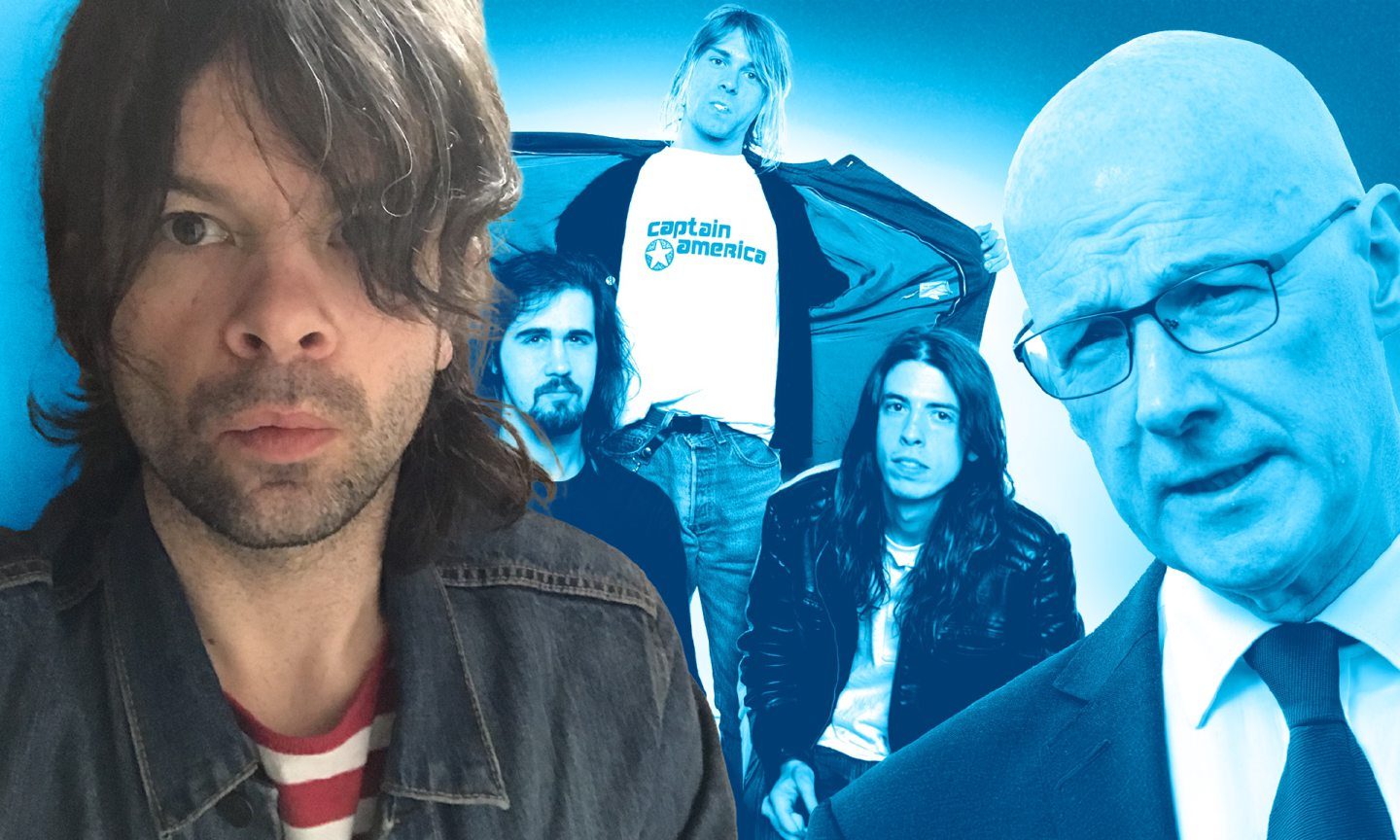
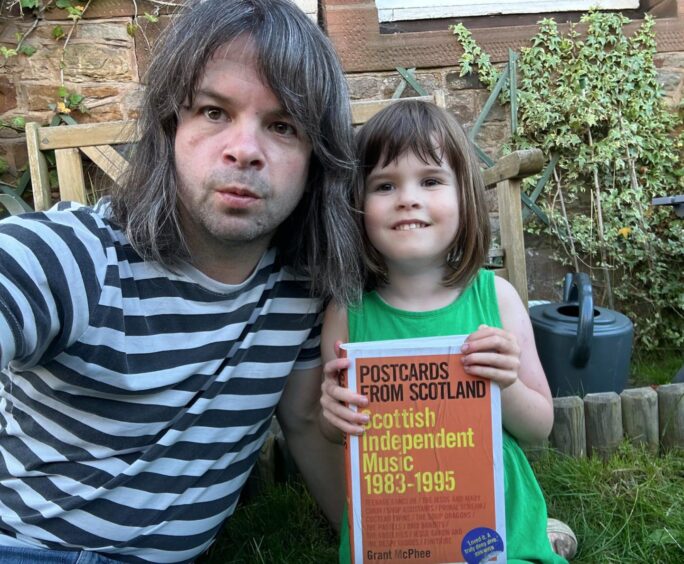
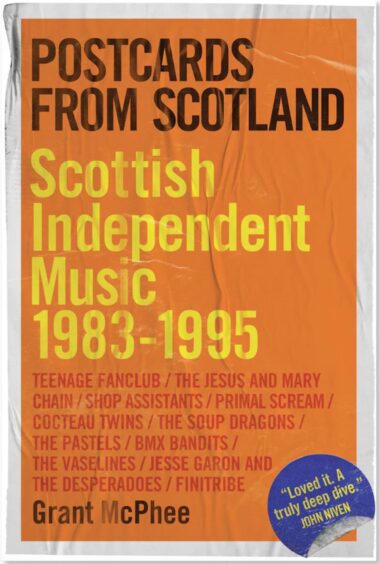
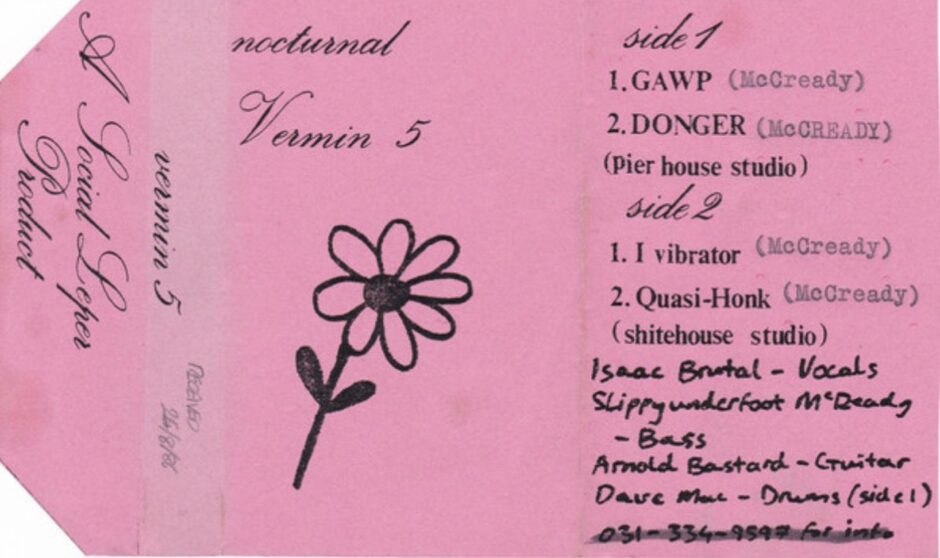
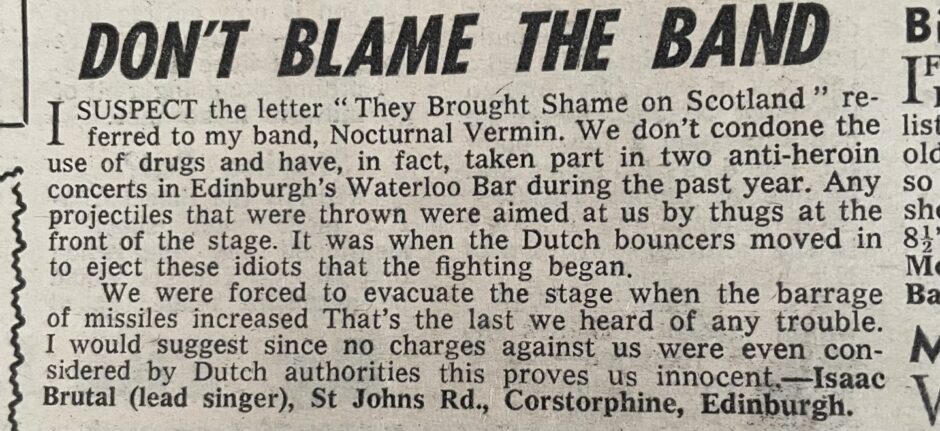
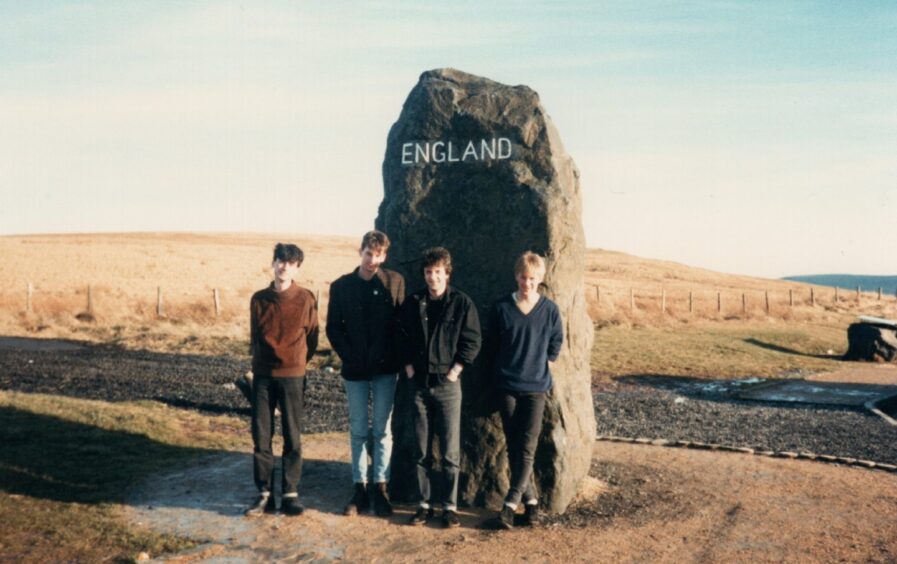
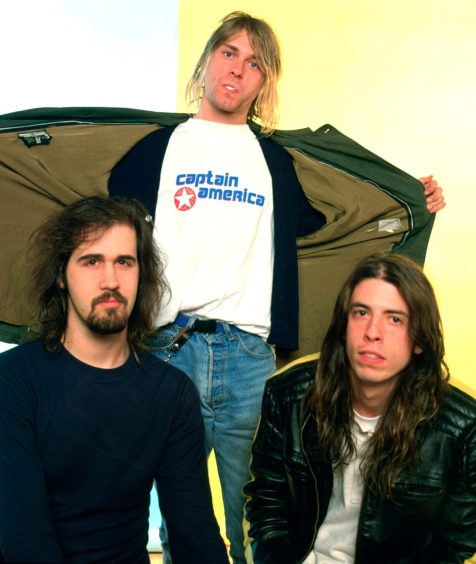
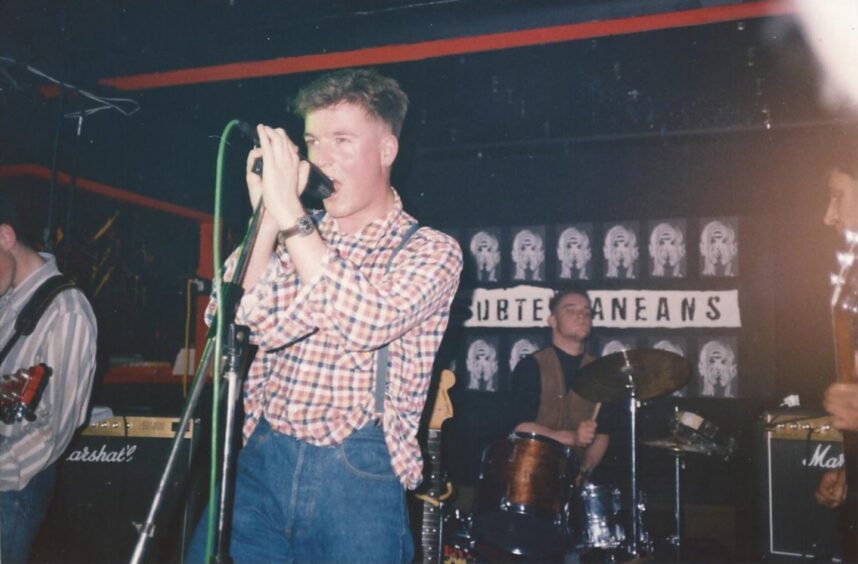
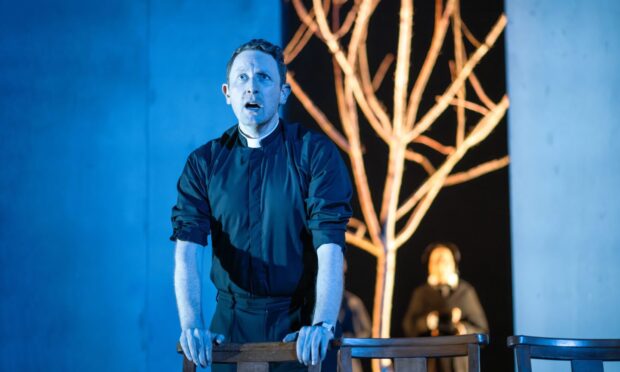
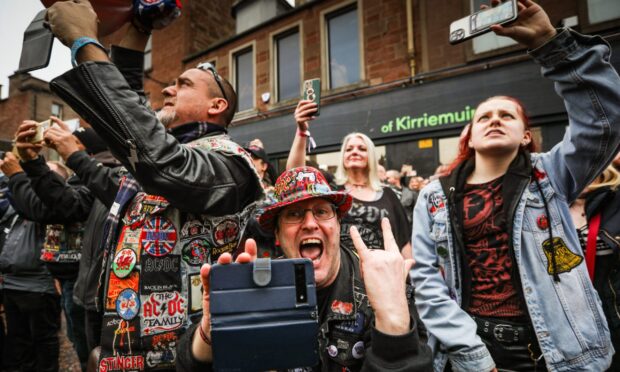
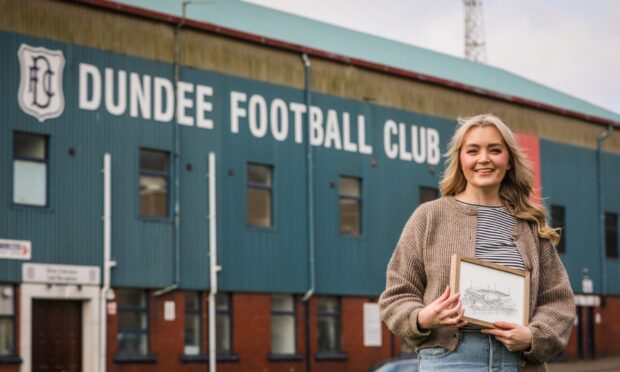
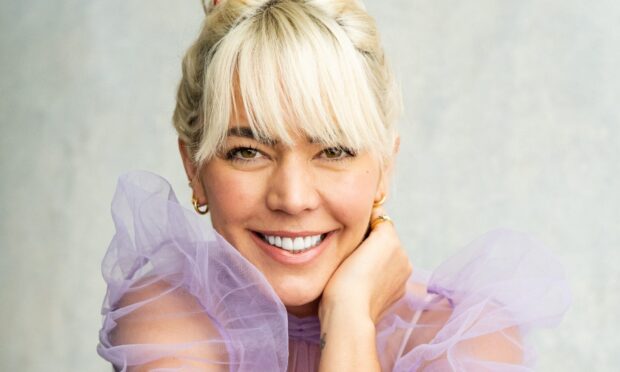
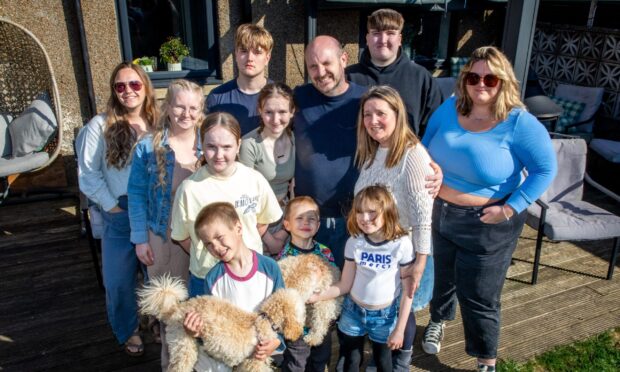
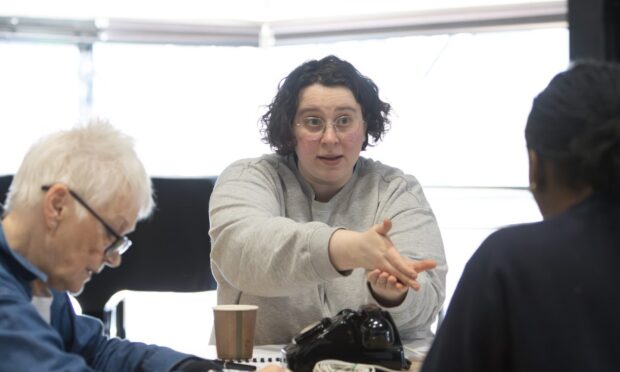
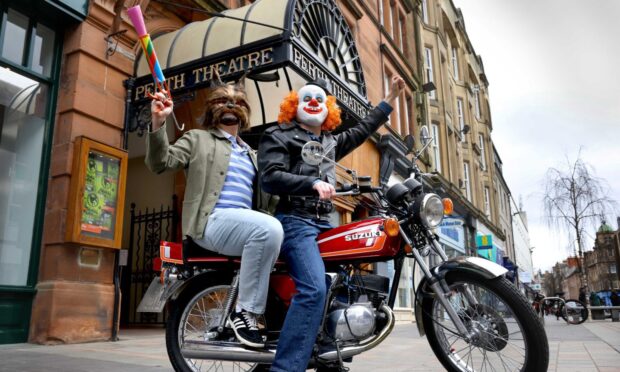
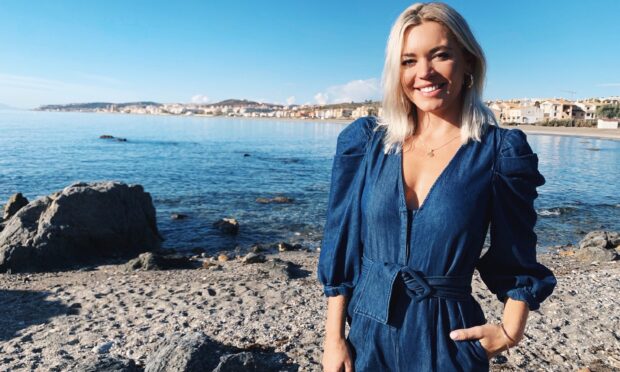
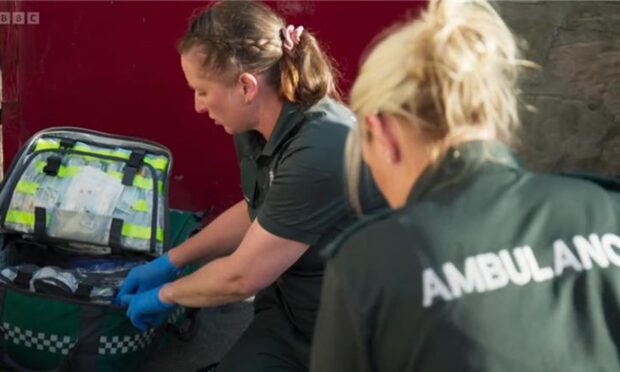
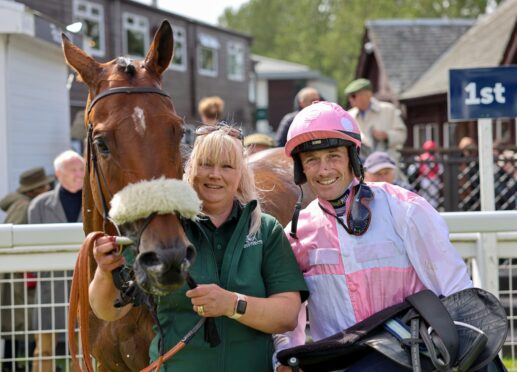
Conversation